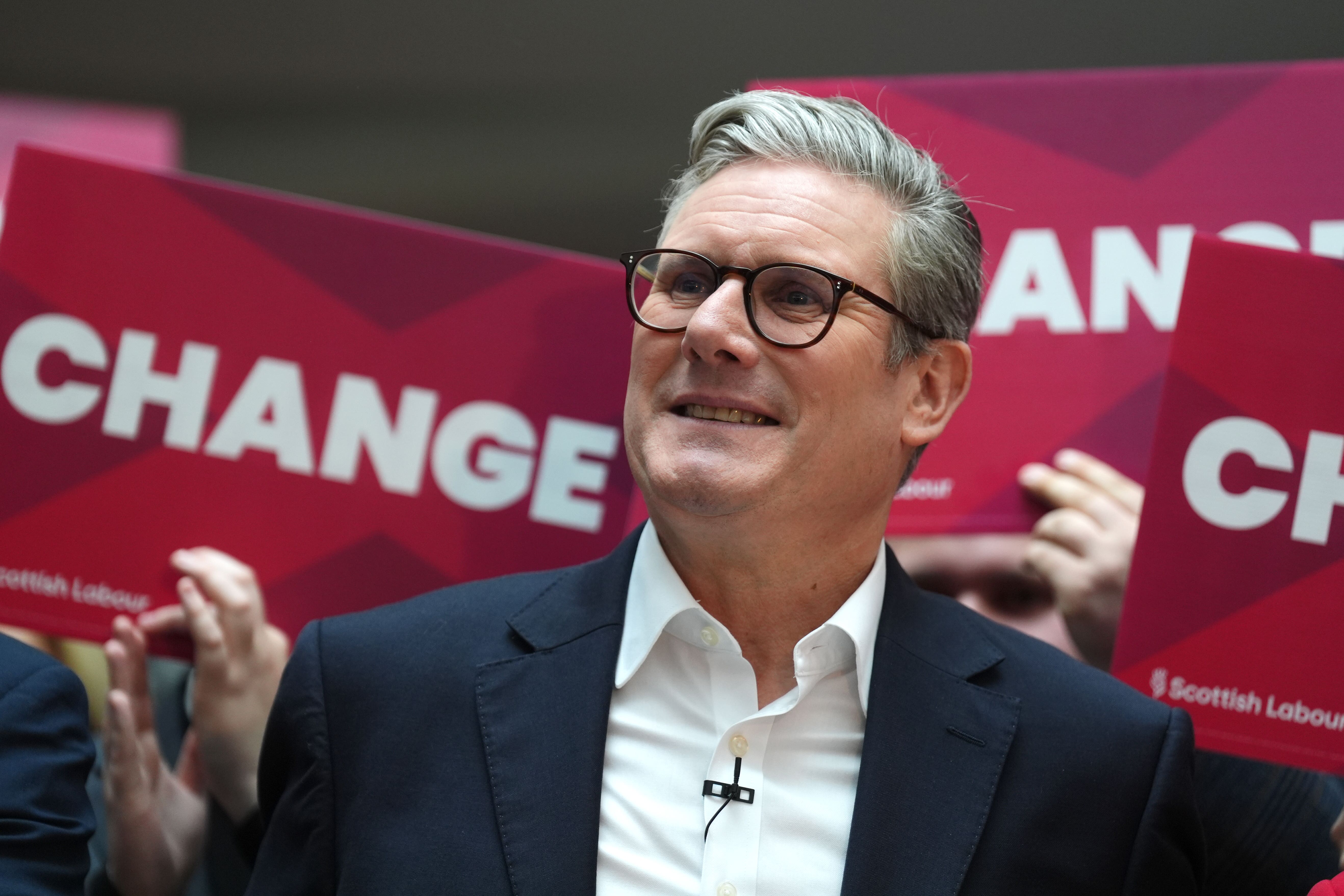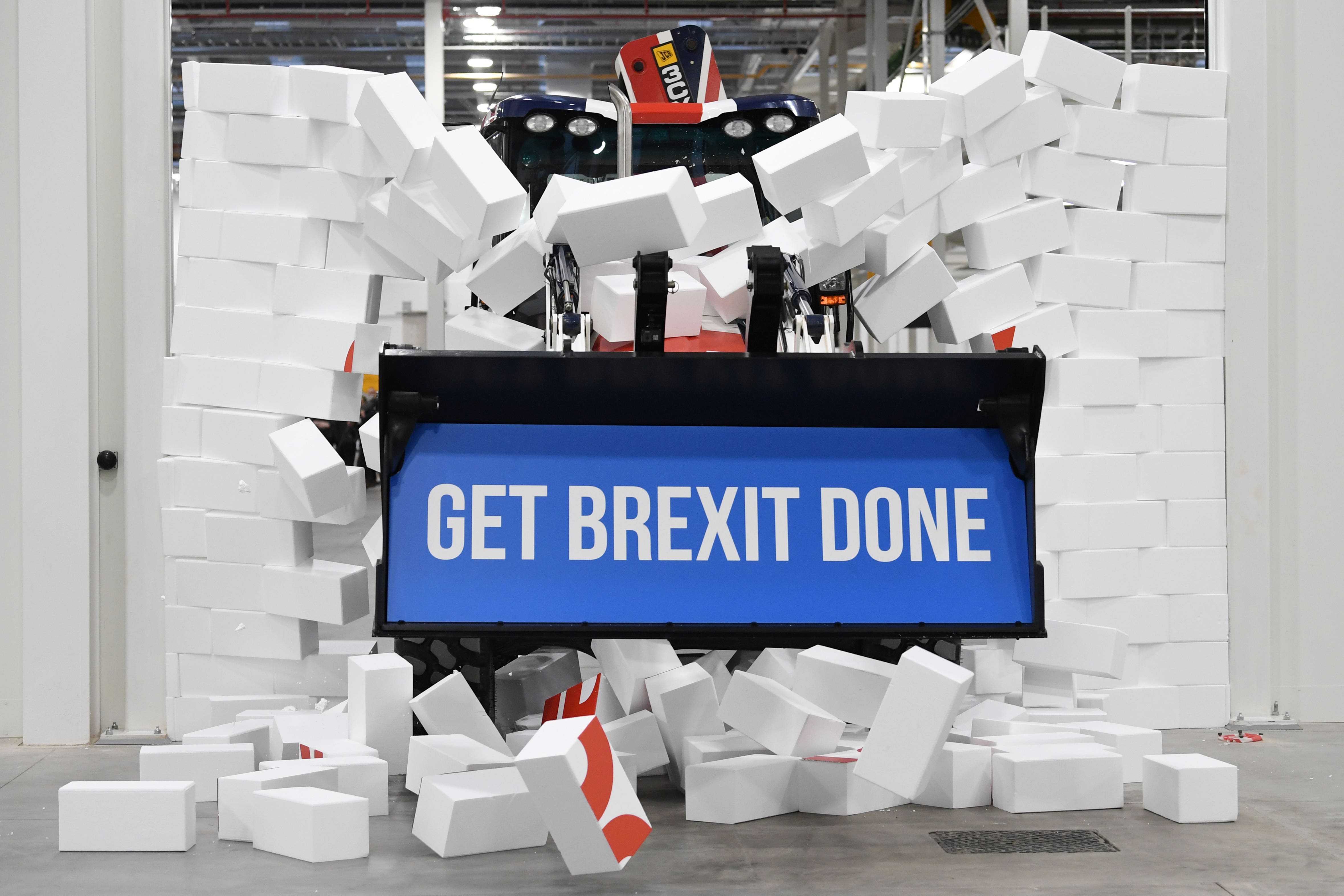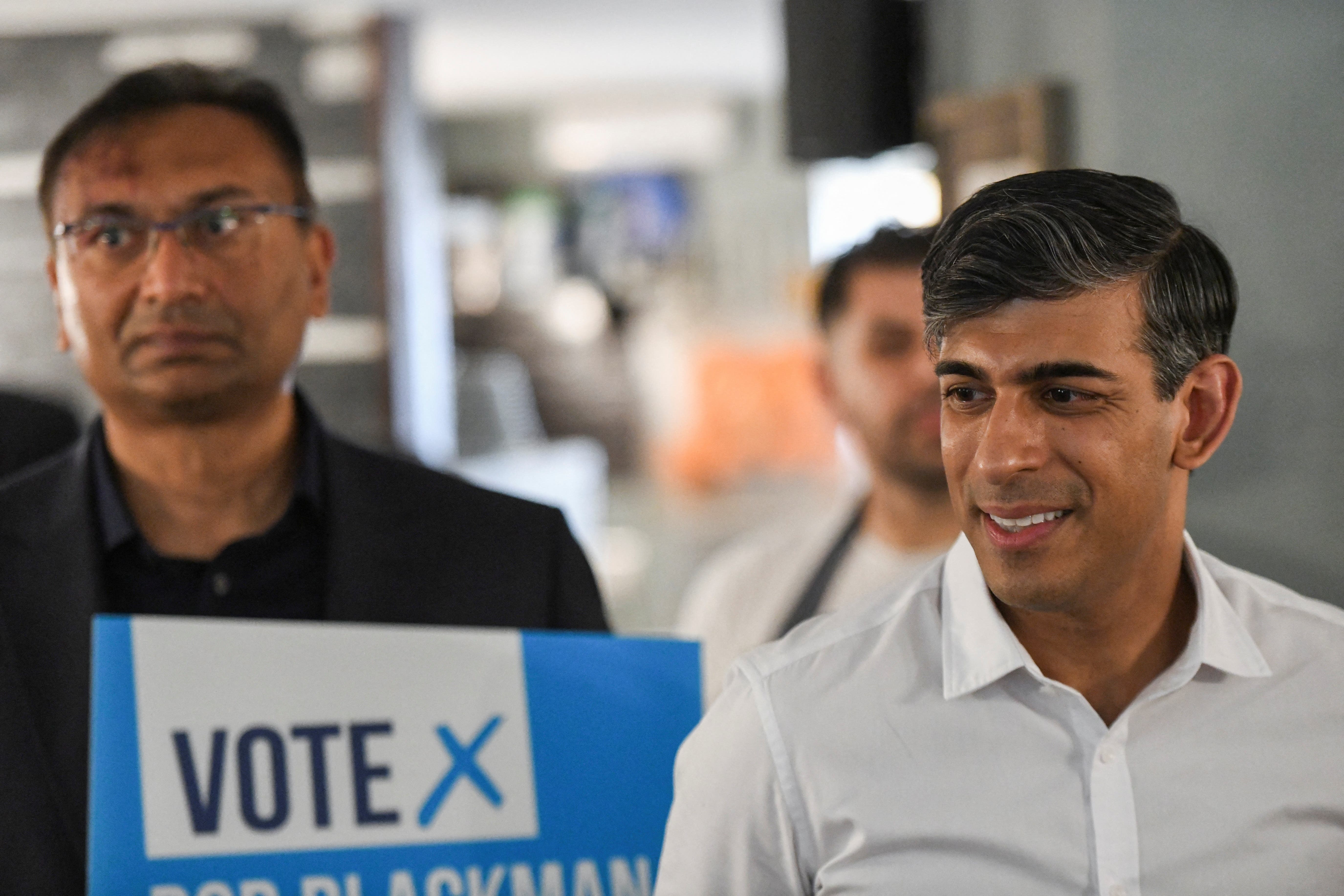Can slogans change the minds of voters before the general election?
For better or worse, Brexit got done and Britain took back control, as Sean O’Grady examines what makes political slogans successful and whether they will have an impact on who enters No 10 on 4 July


Without any specific “launch” events, the main parties have decided what their slogans are going to be. The Labour Party has gone minimalist with its unusual one-word pitch: “Change.” By contrast, the Conservatives, apart from the various invocations of the (never to be seen or actually published) “plan” that they’re sticking to, have chosen an unusually wordy formulation for their social media videos and other materials: “Clear Plan, Bold Action, Secure Future.” The latest polling research commissioned by The Independent suggests, perhaps a little surprisingly, that the public rates it slightly better than Labour’s almost demanding slogan. But there is more to a winning campaign than a good catchphrase...
Do slogans matter?
Yes. They give professional politicians and activists something simple to remember and repeat incessantly until “the message” gets through. They give the media something to play with in reportage and headlines, and commentators something to write about on a slow day (evidently). They can help “connect” a party with the public, particularly if, as in more recent times, they are coined in focus groups by the public themselves. The highly successful and versatile phrases used by the Leave side in the 2016 EU referendum were the epitome of the technique of reflecting back to the public their own inchoate opinions: “Take Back Control.” Whoever spontaneously volunteered that in some hotel meeting room with a team of pollsters has never had a penny in royalties.

Can a slogan create a mood?
No, but it can capture one and amplify it to great effect. A public mood for “Change” is the most powerful weapon available to an opposition party, especially after a long run of domination by one party. Speeches and campaign themes about “thirteen wasted years” certainly helped Harold Wilson scrape to victory in the 1964 general election. The 14 years since David Cameron and Nick Clegg formed the coalition government also have a distant feel, and there’s the same sense of an accident-prone governing party running out of ideas and talent.
Similarly, the Tories in 1979 suggested, in an ever-so-slightly slightly insistent manner, that if you were fed up with strikes, inflation and unemployment then “Don’t just hope for a better life. Vote for one”, often over a picture of Margaret Thatcher at her most headmistressy. People duly did, and within a few years got higher inflation, more unemployment and one of the longest strikes in industrial history when the miners were locked in combat with Thatcher’s government. By that time she was describing trade unionists as “the enemy within”, and the words of St Francis’s prayer that she famously quoted on taking power had been long dishonoured: “Where there is discord, may we bring harmony.” Slogans, even for “conviction” politicians, are never forever.

What makes a good slogan?
Punchy two and three-word confections seem to work well. Most of the Dominic Cummings-Boris Johnson slogans fell into this category – Take Back Control (as discussed); Build Back Better; Levelling Up; Unleashing Britain’s Potential. Various versions of “New Labour, New Britain”, though meaningless, also worked well for New Labour in 1997.
Never underestimate the power of the dog whistle, however. Great slogans – in the sense of their insidious, sinister effectiveness – can help a party that’s otherwise struggling. The vaguely creepy slogan used by Michael Howard’s Tories in the 2005 general election (which they were never going to win) was controversial but seemed to work all the same: “Are you thinking what we’re thinking?” Much the same applies for a familiar sounding sentiment that helped Ukip and is now deployed by Reform UK: “We Want Our Country Back.”
How do you avoid a flop?
By not being ridiculous, and trying to persuade the electorate that the world is not as they see it. So the Tories did very well in the booming atmosphere of 1959 with their peculiarly upbeat bit of negative campaigning: “Life’s better with the Conservatives – Don’t let Labour ruin it.” People with a Hoover, Kenwood Chef or Austin Cambridge motor car bought on hire purchase had good reason to fear what might go wrong. But that only works in the good times; in the era of food banks, unaffordable homes and record NHS waiting lists, it certainly doesn’t feel to many that life’s better under the Conservatives. It’s also a reason why the supposed danger of “going back to square one” with Stamer doesn’t cut through as well as it might.
Can a bad slogan lose an election?
No. The vast majority are bland, empty, formulaic, interchangeable and supremely unforgettable but they rarely do much actual damage. Labour’s appeal in 2005 – “Forward not Back” – is probably the most vacuous because, after all, what politician (apart from Jacob Rees-Mogg) is going to openly ask people to send them backwards and not forward? To be fair, the awkward Labour request to “Think positive. Act positive. Vote Labour” in 1983 didn’t contribute that much to the disaster that year, it was more about leadership and policy than presentation. The Sunak slogan of today, “Clear Plan, Bold Action, Secure Future”, recalls that eccentricity but, good or bad, it won’t be why they lose the election; the best slogan of all time couldn’t stop that now.



Join our commenting forum
Join thought-provoking conversations, follow other Independent readers and see their replies
Comments